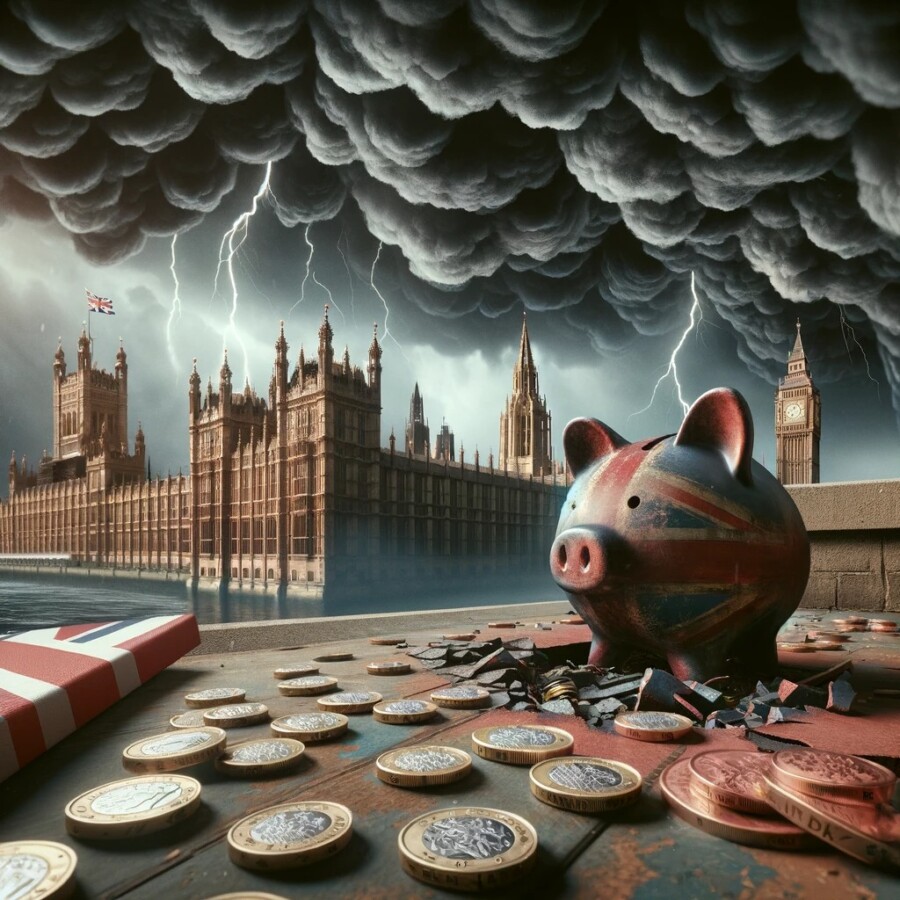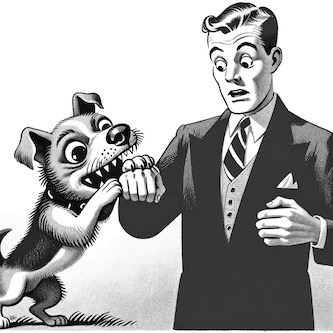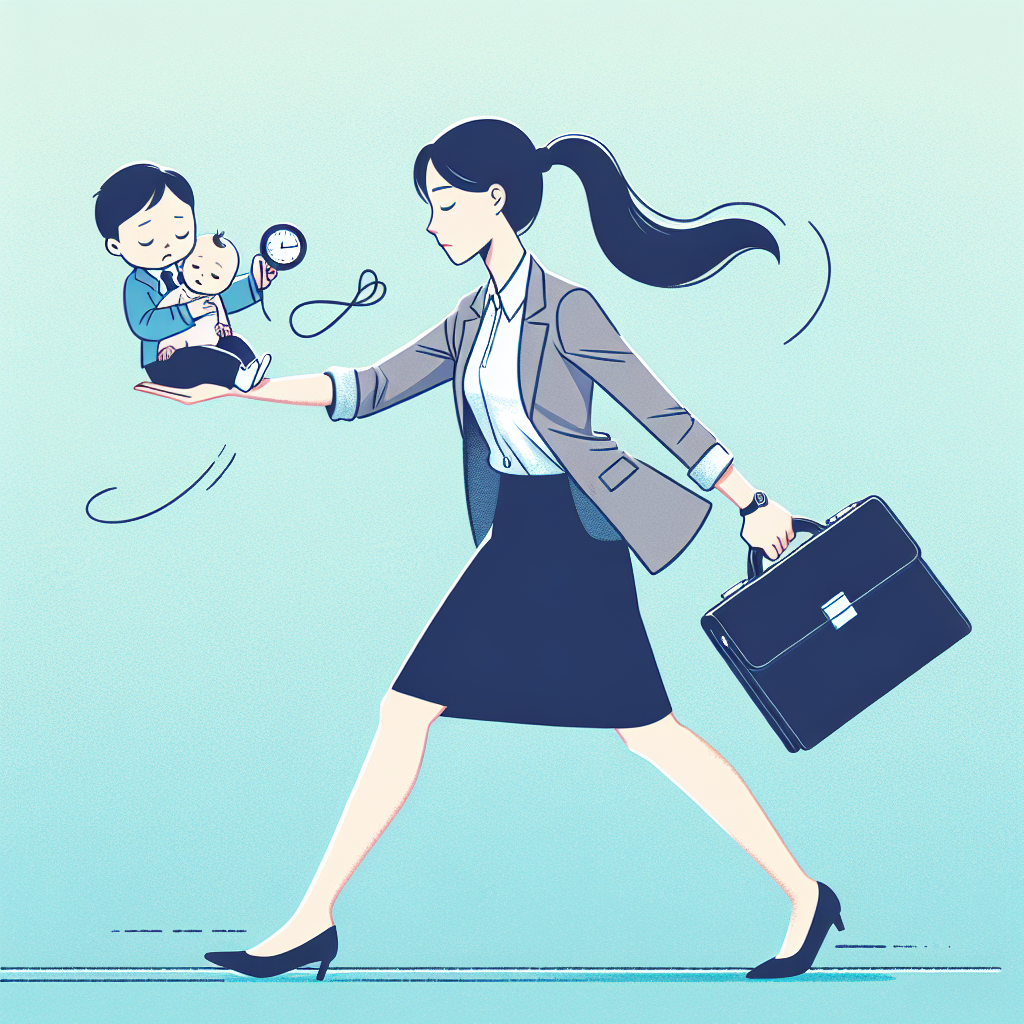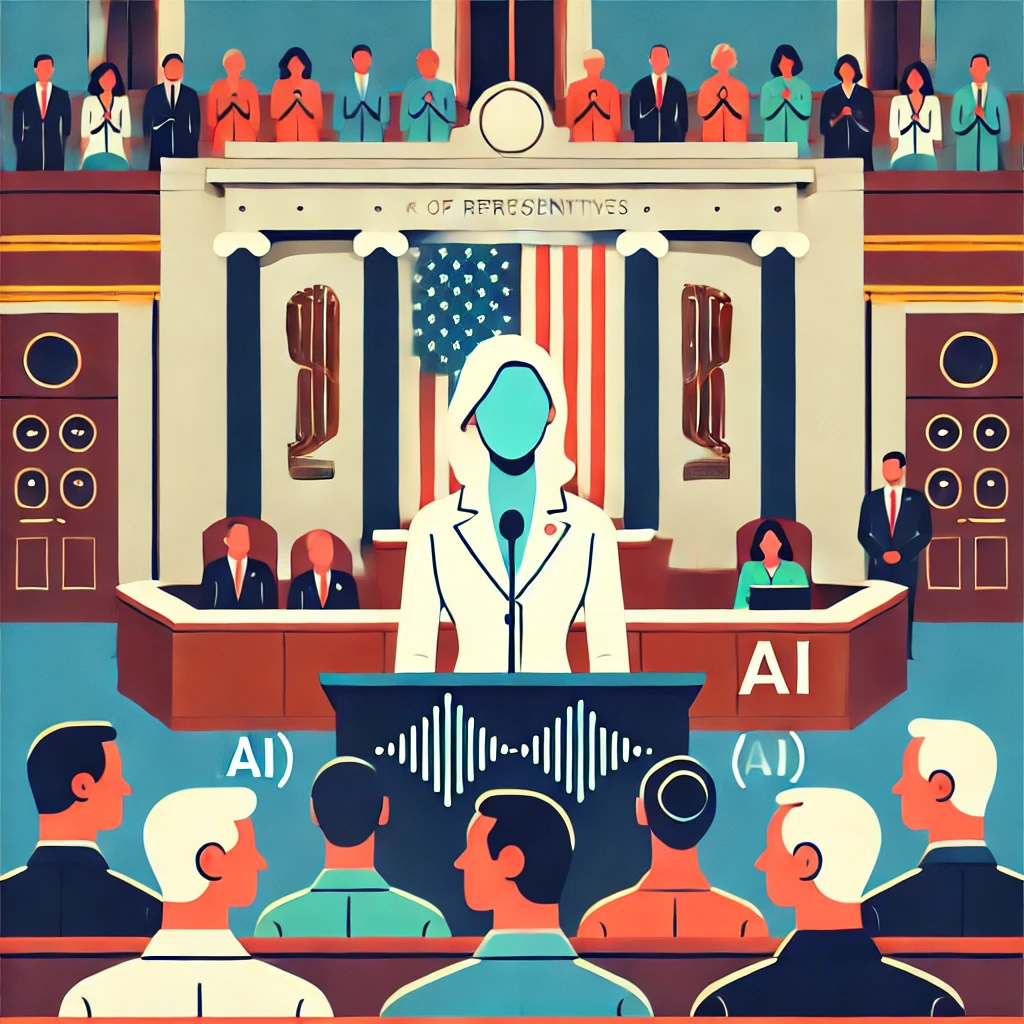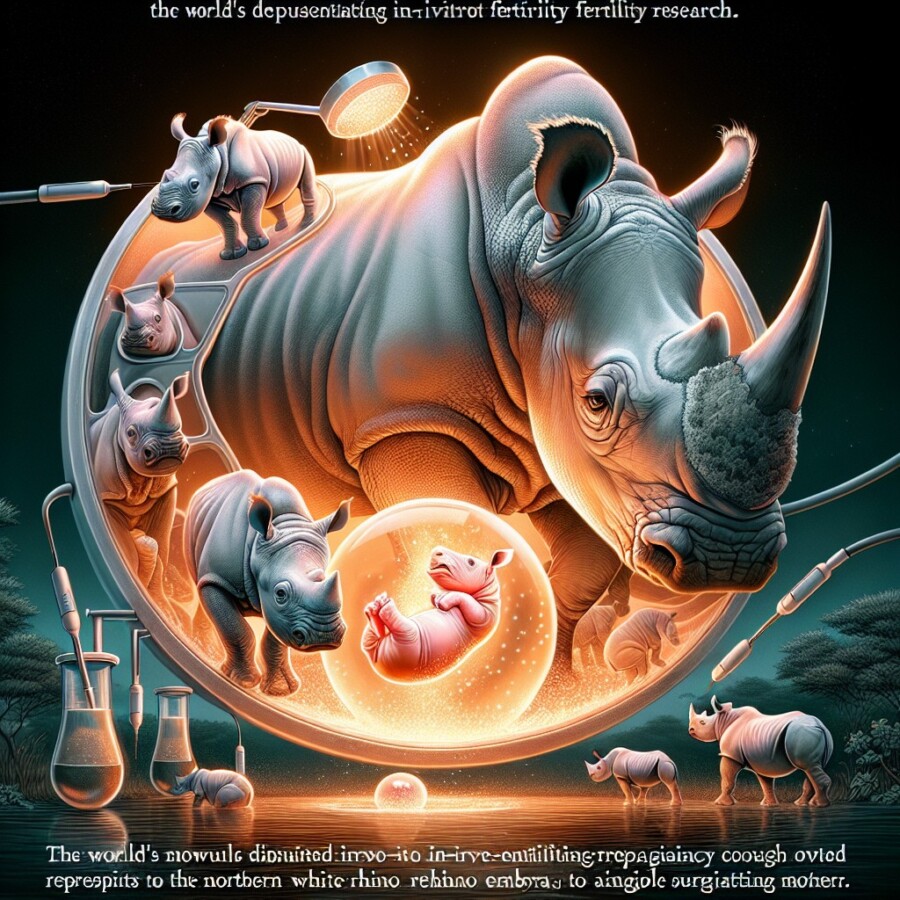The UK is in danger of going into a recession because new information shows that the economy shrank between July and September. The numbers were revised and now show a 0.1% decrease, which is different from what was previously thought. This comes after no growth between April and June, which was originally reported as a 0.2% increase. A recession happens when the economy shrinks for two quarters in a row. People are worried about the UK’s weak economic growth, and experts think that growth will stay slow until 2024.
When the economy is growing, it’s usually a good thing because it means companies are making more money, there are more jobs available, and wages can go up. But when the economy is not growing or is shrinking, people tend to feel worse off. Companies might cut jobs, which makes it harder for young people to find work. The state of the economy is expected to be an important issue in the upcoming election.
The Bank of England has been raising interest rates to try to control inflation. But now that inflation is lower than expected, some people think the Bank might lower interest rates next year. Chancellor Jeremy Hunt is hopeful about the future of the UK economy, but the shadow chancellor, Rachel Reeves, says the prime minister hasn’t done enough to help it grow. We won’t know for sure if the UK is in a recession until February when the numbers for the last quarter of the year are released.
New information from the Office for National Statistics (ONS) shows that rising interest rates have made people spend less money. Higher interest rates can help with inflation and benefit people who save money, but they can also make it more expensive for people and businesses to borrow money, which affects the economy. The ONS also changed its numbers for the three months after getting more information. They found that sectors like film production, engineering and design, telecommunications, and smaller businesses in the hospitality and IT sectors didn’t do as well as they thought.
Compared to other advanced economies in the G7, the UK’s growth rate is one of the weakest when you look at the time before and after Covid. The UK’s economy is now 1.4% higher than it was before the pandemic, which is less than what was previously thought. Germany currently has the worst economy based on this measure. Retail sales data from the ONS showed that sales were better than expected in November because of Black Friday discounts. But some retailers are worried about how long the sales last and how often things are discounted.
Original news source: UK at risk of recession after economy shrinks (BBC)
🎧 Listen:
Slow
Normal
Fast
📖 Vocabulary:
| 1 | recession | A period when the economy is doing poorly, and there’s less money and jobs around. |
| 2 | revised | Changed or updated to be more accurate or correct. |
| 3 | decrease | When something becomes less in amount, size, or number. |
| 4 | quarters | Three-month periods used to measure economic activity. |
| 5 | inflation | When prices of things go up and money buys less than before. |
| 6 | interest rates | The cost of borrowing money or the reward for saving money. |
| 7 | chancellor | A government official who is responsible for the country’s money and economy. |
| 8 | optimistic | Feeling positive about the future and expecting good things to happen. |
| 9 | statistics | Information in the form of numbers that shows different facts or figures. |
| 10 | telecommunications | The technology and systems used for sending messages over distances. |
| 11 | hospitality | The part of the economy that deals with providing food, drink, and places to stay. |
| 12 | advanced | More developed or at a higher level than others. |
| 13 | pandemic | A worldwide outbreak of a disease. |
| 14 | retailers | People or businesses that sell things directly to customers. |
| 15 | discounts | Lower prices on items to encourage people to buy more. |
Group or Classroom Activities
Warm-up Activities:
– News Summary
Instructions: Divide the class into pairs or small groups. Give each group a few minutes to read the article. Then, ask each group to summarize the main points of the article in a few sentences. Afterward, have each group share their summaries with the rest of the class. Encourage discussion and clarification of any difficult vocabulary or concepts.
– Opinion Poll
Instructions: Have the class form two lines facing each other. Assign one side as “Agree” and the other side as “Disagree.” Read out a statement related to the article, such as “The UK’s weak economic growth is a major concern.” Give the students a few seconds to decide if they agree or disagree with the statement, then have them move to the appropriate side. Once they have chosen their side, encourage them to discuss their reasons with the person facing them. After a couple of minutes, randomly select a few students to share their opinions with the class.
– Vocabulary Pictionary
Instructions: Divide the class into small groups. Give each group a list of vocabulary words from the article. One person from each group must draw a picture representing a word from the list, while the other group members try to guess the word. The person drawing cannot use any letters or numbers. The group that guesses the most words correctly wins.
– Pros and Cons
Instructions: Divide the class into two groups. Assign one group to represent the pros and the other group to represent the cons of the UK’s weak economic growth. Give each group a few minutes to brainstorm their arguments and gather evidence from the article. Then, have each group take turns presenting their arguments to the class. Encourage respectful debate and discussion.
– Future Predictions
Instructions: In pairs or small groups, have the students discuss and make predictions about the future of the UK economy based on the information in the article. They should consider factors such as interest rates, inflation, and the upcoming election. After the discussion, ask each group to share their predictions with the class and explain their reasoning. Encourage critical thinking and analysis.
🤔 Comprehension Questions:
1. What does it mean for the UK to be in a recession?
2. Why do people feel worse off when the economy is not growing or is shrinking?
3. What has the Bank of England been doing to control inflation?
4. How might lower interest rates affect the economy?
5. Which sectors of the economy did not perform as well as expected, according to the Office for National Statistics?
6. How does the UK’s growth rate compare to other advanced economies in the G7?
7. Why were sales better than expected in November?
8. Why are some retailers worried about the frequency of sales and discounts?
Go to answers ⇩
🎧✍️ Listen and Fill in the Gaps:
The UK is in danger of (1)______ into a recession because new information shows that the (2)______ shrank between July and September. The numbers were (3)______ and now show a 0.1% decrease, which is different from what was previously thought. This comes after no growth between April and June, which was originally reported as a 0.2% increase. A recession (4)______ when the economy shrinks for two quarters in a row. People are worried about the UK’s weak economic growth, and experts think that growth will stay slow until 2024.
When the economy is growing, it’s usually a good thing because it means companies are making more money, there are more jobs available, and wages can go up. But when the economy is not growing or is shrinking, people tend to feel worse off. (5)______ might cut jobs, which makes it harder for (6)______ people to find work. The state of the economy is (7)______ to be an important issue in the upcoming election.
The Bank of England has been raising interest rates to try to control inflation. But now that inflation is lower than expected, some people (8)______ the Bank might lower interest rates next year. Chancellor Jeremy Hunt is hopeful about the future of the UK economy, but the shadow chancellor, Rachel Reeves, says the prime minister hasn’t done enough to help it grow. We won’t know for sure if the UK is in a recession until February when the numbers for the last quarter of the year are released.
New information from the Office for National Statistics (ONS) shows that rising interest rates have made people spend less money. Higher interest rates can help with inflation and benefit people who save money, but they can also make it more expensive for people and businesses to borrow money, which affects the economy. The ONS also changed its numbers for the three (9)______ after getting more information. They found that sectors like film (10)______, (11)______ and (12)______, telecommunications, and smaller (13)______ in the hospitality and IT (14)______ didn’t do as well as they (15)______.
Compared to other advanced economies in the G7, the UK’s growth rate is one of the weakest when you look at the time before and after Covid. The UK’s economy is now 1.4% higher than it was before the pandemic, which is less than what was previously thought. Germany currently has the worst economy based on this measure. Retail (16)______ data from the ONS showed that sales were better than expected in November because of Black Friday discounts. But some retailers are worried about how long the sales last and how often things are discounted.
Go to answers ⇩
💬 Discussion Questions:
Students can ask a partner these questions, or discuss them as a group.
1. What is a recession and why is it a concern for a country?
2. How would you feel if you couldn’t find a job because the economy was shrinking?
3. Do you think it’s important for the economy to grow? Why or why not?
4. How do rising interest rates affect people’s spending habits?
5. Do you think the government should lower interest rates to encourage spending? Why or why not?
6. Why is inflation a concern for the Bank of England?
7. How do interest rates affect borrowing money for individuals and businesses?
8. What do you think the government can do to help the UK economy grow?
9. How do you think the state of the economy will impact the upcoming election?
10. What sectors of the economy do you think were most affected by the pandemic?
11. How do you feel about Black Friday sales and discounts? Do you think they are good for the economy?
12. What measures can retailers take to encourage people to continue shopping after Black Friday?
13. How do you think the UK’s economy compares to other countries in the G7?
14. What are some potential consequences of a weak economy for individuals and businesses?
15. How does economic growth impact job opportunities and wages?
Individual Activities
📖💭 Vocabulary Meanings:
Match each word to its meaning.
Words:
1. recession
2. revised
3. decrease
4. quarters
5. inflation
6. interest rates
7. chancellor
8. optimistic
9. statistics
10. telecommunications
11. hospitality
12. advanced
13. pandemic
14. retailers
15. discounts
Meanings:
(A) Information in the form of numbers that shows different facts or figures.
(B) The technology and systems used for sending messages over distances.
(C) A worldwide outbreak of a disease.
(D) A government official who is responsible for the country’s money and economy.
(E) Lower prices on items to encourage people to buy more.
(F) When prices of things go up and money buys less than before.
(G) When something becomes less in amount, size, or number.
(H) A period when the economy is doing poorly, and there’s less money and jobs around.
(I) People or businesses that sell things directly to customers.
(J) The cost of borrowing money or the reward for saving money.
(K) Three-month periods used to measure economic activity.
(L) More developed or at a higher level than others.
(M) The part of the economy that deals with providing food, drink, and places to stay.
(N) Feeling positive about the future and expecting good things to happen.
(O) Changed or updated to be more accurate or correct.
Go to answers ⇩
🔡 Multiple Choice Questions:
1. What does it mean when the economy is in a recession?
(a) The economy is growing rapidly.
(b) The economy is stable and not changing.
(c) The economy is experiencing high inflation.
(d) The economy is shrinking for two quarters in a row.
2. Why do people feel worse off when the economy is not growing or is shrinking?
(a) Companies may cut jobs, making it harder for young people to find work.
(b) Companies are making more money and wages are increasing.
(c) The government is investing more in social programs.
(d) The cost of living decreases.
3. What has the Bank of England been doing to control inflation?
(a) Lowering interest rates.
(b) Increasing government spending.
(c) Raising interest rates.
(d) Implementing tax cuts.
4. What effect can rising interest rates have on the economy?
(a) It can make it more expensive for people and businesses to borrow money.
(b) It can lead to higher inflation rates.
(c) It can stimulate economic growth.
(d) It can increase government revenue.
5. How has the UK’s growth rate compared to other advanced economies in the G7?
(a) It is one of the strongest.
(b) It is average.
(c) It is one of the weakest.
(d) It is difficult to determine.
6. What sector of the economy did not perform as well as expected, according to the Office for National Statistics?
(a) Retail sales and hospitality.
(b) Film production, engineering and design, telecommunications.
(c) IT and telecommunications.
(d) Manufacturing and construction.
7. What event in November led to better-than-expected retail sales?
(a) Government stimulus checks.
(b) New product releases.
(c) Increased consumer confidence.
(d) Black Friday discounts.
8. When will we know for sure if the UK is in a recession?
(a) In April, when the annual economic report is published.
(b) In February, when the numbers for the last quarter of the year are released.
(c) In June, when the government announces its economic plans.
(d) In September, when the Bank of England releases its interest rate decision.
Go to answers ⇩
🕵️ True or False Questions:
1. This follows a previous period of significant growth between April and June, which was initially reported as a 0.2% increase.
2. The true state of the UK’s economy will be revealed in February when the numbers for the last quarter of the year are released.
3. The revised numbers show a 0.1% decrease in the economy during that period.
4. The UK is at risk of entering a recession due to a recent decline in the economy between July and September.
5. Chancellor Jeremy Hunt is optimistic about the future of the UK economy, while the shadow chancellor, Rachel Reeves, criticizes the prime minister for not doing enough to stimulate growth.
6. The Bank of England has been lowering interest rates to control inflation, but some believe they may raise rates next year due to higher-than-expected inflation.
7. Experts predict that the UK’s economic growth will remain slow until 2024.
8. A recession occurs when the economy grows for two consecutive quarters.
Go to answers ⇩
📝 Write a Summary:
Write a summary of this news article in two sentences.
Check your writing now with the best free AI for English writing!
Writing Questions:
Answer the following questions. Write as much as you can for each answer.
Check your answers with our free English writing assistant!
1. What does it mean for a country to go into a recession?
2. Why do people feel worse off when the economy is not growing or is shrinking?
3. What has the Bank of England been doing to control inflation?
4. How can rising interest rates affect people and businesses?
5. How does the UK’s growth rate compare to other advanced economies in the G7?
✅ Answers
🤔✅ Comprehension Question Answers:
1. What does it mean for the UK to be in a recession?
– When the UK is in a recession, it means that the economy is shrinking for two quarters in a row. This is not a good thing because it can lead to job cuts and make it harder for people to find work.
2. Why do people feel worse off when the economy is not growing or is shrinking?
– When the economy is not growing or is shrinking, people tend to feel worse off because companies may cut jobs and wages may not increase. This makes it harder for people to make money and can lead to financial difficulties.
3. What has the Bank of England been doing to control inflation?
– The Bank of England has been raising interest rates to control inflation. By raising interest rates, they make it more expensive for people and businesses to borrow money, which can help control inflation.
4. How might lower interest rates affect the economy?
– Lower interest rates can affect the economy by making it cheaper for people and businesses to borrow money. This can encourage spending and investment, which can help stimulate economic growth.
5. Which sectors of the economy did not perform as well as expected, according to the Office for National Statistics?
– According to the Office for National Statistics, sectors such as film production, engineering and design, telecommunications, and smaller businesses in the hospitality and IT sectors did not perform as well as expected.
6. How does the UK’s growth rate compare to other advanced economies in the G7?
– The UK’s growth rate is one of the weakest compared to other advanced economies in the G7. This means that the UK’s economy is not growing as quickly as countries like the United States, Germany, and Japan.
7. Why were sales better than expected in November?
– Sales were better than expected in November because of Black Friday discounts. Many retailers offered special deals and discounts, which encouraged people to spend more money.
8. Why are some retailers worried about the frequency of sales and discounts?
– Some retailers are worried about the frequency of sales and discounts because they may devalue their products and make it harder to sell them at full price. If sales and discounts happen too often, customers may start to expect them and be less willing to pay full price for items.
Go back to questions ⇧
🎧✍️✅ Listen and Fill in the Gaps Answers:
(1) going
(2) economy
(3) revised
(4) happens
(5) Companies
(6) young
(7) expected
(8) think
(9) months
(10) production
(11) engineering
(12) design
(13) businesses
(14) sectors
(15) thought
(16) sales
Go back to questions ⇧
📖💭✅ Vocabulary Meanings Answers:
1. recession
Answer: (H) A period when the economy is doing poorly, and there’s less money and jobs around.
2. revised
Answer: (O) Changed or updated to be more accurate or correct.
3. decrease
Answer: (G) When something becomes less in amount, size, or number.
4. quarters
Answer: (K) Three-month periods used to measure economic activity.
5. inflation
Answer: (F) When prices of things go up and money buys less than before.
6. interest rates
Answer: (J) The cost of borrowing money or the reward for saving money.
7. chancellor
Answer: (D) A government official who is responsible for the country’s money and economy.
8. optimistic
Answer: (N) Feeling positive about the future and expecting good things to happen.
9. statistics
Answer: (A) Information in the form of numbers that shows different facts or figures.
10. telecommunications
Answer: (B) The technology and systems used for sending messages over distances.
11. hospitality
Answer: (M) The part of the economy that deals with providing food, drink, and places to stay.
12. advanced
Answer: (L) More developed or at a higher level than others.
13. pandemic
Answer: (C) A worldwide outbreak of a disease.
14. retailers
Answer: (I) People or businesses that sell things directly to customers.
15. discounts
Answer: (E) Lower prices on items to encourage people to buy more.
Go back to questions ⇧
🔡✅ Multiple Choice Answers:
1. What does it mean when the economy is in a recession?
Answer: (d) The economy is shrinking for two quarters in a row.
2. Why do people feel worse off when the economy is not growing or is shrinking?
Answer: (a) Companies may cut jobs, making it harder for young people to find work.
3. What has the Bank of England been doing to control inflation?
Answer: (c) Raising interest rates.
4. What effect can rising interest rates have on the economy?
Answer: (a) It can make it more expensive for people and businesses to borrow money.
5. How has the UK’s growth rate compared to other advanced economies in the G7?
Answer: (c) It is one of the weakest.
6. What sector of the economy did not perform as well as expected, according to the Office for National Statistics?
Answer: (b) Film production, engineering and design, telecommunications.
7. What event in November led to better-than-expected retail sales?
Answer: (d) Black Friday discounts.
8. When will we know for sure if the UK is in a recession?
Answer: (b) In February, when the numbers for the last quarter of the year are released.
Go back to questions ⇧
🕵️✅ True or False Answers:
1. This follows a previous period of significant growth between April and June, which was initially reported as a 0.2% increase. (Answer: False)
2. The true state of the UK’s economy will be revealed in February when the numbers for the last quarter of the year are released. (Answer: False)
3. The revised numbers show a 0.1% decrease in the economy during that period. (Answer: True)
4. The UK is at risk of entering a recession due to a recent decline in the economy between July and September. (Answer: True)
5. Chancellor Jeremy Hunt is optimistic about the future of the UK economy, while the shadow chancellor, Rachel Reeves, criticizes the prime minister for not doing enough to stimulate growth. (Answer: True)
6. The Bank of England has been lowering interest rates to control inflation, but some believe they may raise rates next year due to higher-than-expected inflation. (Answer: False)
7. Experts predict that the UK’s economic growth will remain slow until 2024. (Answer: True)
8. A recession occurs when the economy grows for two consecutive quarters. (Answer: False)
Go back to questions ⇧



